随著台湾总统大选的临近,西方著名媒体——主要是美国和英国媒体,但如今也加入了印度媒体——开始疯狂地刊登和分析台湾和中国关系的报导。但这种关注并不是为了提供有关台湾选举的公正报道。
这是一种反华的重构或重述报导。这就像重演近年有关新冠病毒的反华报道。此前中国在西藏、达赖喇嘛、天安门、法轮功、香港、新疆、维吾尔族等问题上也曾遭受过同样的歪曲对待。今天的报导中还加上了“独裁”、“种族灭绝”、“反民主”等引人注目的字眼,以抹黑中国领导层。
以下为网络上最近搜寻到的有关台湾政治最新发展报导:
在美国著名的台湾驻美代表,遭中国诋毁,被任命为副总统候选人/美国在线(路透社文)
台湾在野阵营无法达成共识/雅虎新闻(BBC文)
台湾反对派花了一个小时公开争论谁将竞选总统/财经杂志财富
总统选举:台湾反对派分裂,中国受挫/TIMESOFINDIA.COM
总统选举临近,11架中国战机越过台海中线:监视/印度斯坦时报
台湾反对派联盟破局,郭台铭退出竞选/庞卡城新闻
从中我们可以看到,即使是来自西方小地方的小型媒体机构,其读者群对千里之外的世界某个地区发生的事很少或完全没有兴趣,也加入了华盛顿的“中国是我们敌人”之行列,采用来自6家被称为“白人媒体”(如美联社、路透社等)重新炒作的故事,以策划和煽动反华的歇斯底里情绪。
西方和印度媒体策略
记者协会的道德准则呼吁记者寻求真相并报道真相。这包括事实查核、不扭曲资讯、识别资讯来源、避免刻板印像以及支持意见公开交流。
但当西方和印度媒体指责中国媒体缺乏独立性、充当中国共产党“喉舌”时,西方媒体又是否拥有这些职业道德和原则?
所以,对台湾和中国的事态发展,西方和印度媒体很少或根本没有调查研究或独立报导,这并不奇怪。
西方新闻社绝大多数资深记者都是由盎格鲁撒克逊人或白人担任。非白人,包括华人记者的角色通常是充当下属——也许会赋于检查一些参考资料或细节工作,但更似乎是让报道看起来有多样性的视角,以为报道建立起“合法性” 。
令人难以置信的是,尽管中国或台湾新闻在这20多年来已是全球地缘政治头条新闻,但在中国或台湾的新闻报道中,西方媒体依然没有一位著名或可信的中国或亚洲籍记者。
目前没有证据表明,在平面媒体和网络媒体上报道台湾和中国新闻的非华裔记者,具备了可与台湾民众进行深入采访时所需的扎实语言技能。也没有证据表明他们能够与广泛的受访者建立关系,以获取所需的资讯,呈现公正和准确报导。
因此,即使这些记者是独立和正直的,他们的报道也一定充满著缺陷。因为很显然,西方媒体的拥有者和控制者认为他们的主要角色是保护美国、英国、澳洲及其盟国的经济和政治利益。
台湾与地缘政治
印度媒体,如今也加入西方媒体行列,充当各自国家军事、商业和安全利益及机构的宣传机器。台湾对西方而言,其晶片产业和对西方的军购,对美国霸权持续至关重要,也是可靠的摇钱树。
西方政府和公众关心的从来都不是台湾人民的福祉和利益。反之,在19世纪末和20世纪初,西方列强和日本试图瓜分中国。当年,台湾虽然不是西方列强一份子,但却是西方帝国主义时代下的产物,如今西方帝国主义也在试图阻止中国崛起和发展,以维持西方在亚太地区的霸权地位。
今天的中国不仅没有屈服,也没有退缩。其正在耐心等待台湾回归大陆怀抱。榴梿熟了就会掉下来,这也许就是从东南亚人视角看待这发展的最佳写照。
无论西方媒体如何报导台湾的事态发展——包括总统选举的结果——台湾人应该了解,西方关注台湾,只是为了压制中国,并为了军事和经济利益,剥削台湾人民。
林德宜《西方与印度跟台湾“恋情”》原文:The West and India ‘Love Affair’ With Taiwan
As the Taiwan presidential election approaches, prominent western - primarily US and UK media, but now joined by Indian media - are starting a frenzy of stories and analysis on Taiwan and China. But this attention is not to provide fair reporting on the election.
It is to provide reconstituted or rehashed anti China coverage. It is like a replay of the recent anti-China reporting on Covid. And the same skewed treatment has been previously meted out to China on Tibet, the Dalai Lama, Tienanmen, Falun Gong, Hongkong, Xinjiang, the Uyghur, etc. Today the reporting is accompanied with the attention catching words of “dictatorial”, “genocidal”, “anti-democratic” and other smears on China’s leadership.
The following slanted list of news reports emerged from a recent internet search on the latest developments in Taiwan politics.
Taiwan's former US envoy, well-known in US, vilified by China, named VP candidate. Reuters via AOL·
Taiwan's opposition drama ends with no deal.BBC via Yahoo News
Taiwan's opposition spent an hour publicly arguing over who will run for president. Fortune·
Presidential elections: Setback for China as taiwan opposition splits in dramatic feud·TIMESOFINDIA.COM
11 Chinese aircraft knock Taiwan's door as presidential polls loom: 'Monitoring'·Hindustan Times
Taiwan opposition alliance collapses, Terry Gou quits race·The Ponca City News·
From it we see that even small time media organisations from obscure western places with a readership that should have little or no interest in what is happening in a part of the world thousands of miles away are joining the Washington “China is the enemy” bandwagon by recycling stories coming from a half dozen of what has been referred to as “the white man’s media” responsible for framing and fermenting anti China hysteria
Tactics of Western and Indian Media
The Society of Professional Journalists' Code of Ethics calls on journalists to seek truth and report It. This includes fact-checking, not intentionally distorting information, identifying sources, avoiding stereotypes, and supporting the open exchange of opinions.
But are these the professional ethics and principles which Western and Indian media have whilst accusing China’s media of lacking independence and for being the ‘mouthpiece’ of the Communist Party of China?
That there is little or no investigative research or independent journalism in the Western and Indian media reporting on developments in Taiwan and China is not surprising.
The overwhelming majority of senior journalist positions in western news organisations are held by Anglo Saxon or Whites. And the role of non-White, including Chinese, journalists is generally to act as subordinates - perhaps checking on some reference or detail but more usually to give the appearance that the report has some diversity input so as to lend ‘legitimacy’ to the story.
It is hard to believe but there is no prominent or credible Chinese or Asian journalist covering Taiwan - or China - news reporting despite the fact that the two have been in the front pages of global geo-politics news for more than two decades now.
There is no evidence that the non-Chinese journalists whose Taiwan and China reports emerge in the print and online media have the solid language skills needed to conduct in-depth interviews with ordinary Taiwanese. Neither is there evidence that they have been able to establish relationships with the wide range of respondents necessary to obtain information for unbiased and accurate reporting.
And even if these journalists of independence and integrity are to be found, their reports have not emerged unscathed. For it is clear that the owners and controllers of western media see their primary role as protecting the economic and political interests of the United States, Britain, Australia and allies.
How Taiwan Fits Into World Geo-Politics
Western media, now joined by Indian media, act as the propaganda machines of the military, business and security interests and agencies embedded in the respective countries. They Taiwan, its chip industry and purchases of Western weaponry as vital to US continuing hegemony as well as a dependable cash cow.
The concern in the West - its governments and public - has never been about the welfare and interests of the Taiwanese people. Western powers and Japan were enjoined in attempting to carve out the ‘China melon’ or the ‘Chinese cake’ in the late nineteenth and early twentieth century. Taiwan, although an outlier, is an outcome from that period of Western imperialism which is now seeking to retain dominance in the Asia-Pacific region by stopping the rise and development of China.
Today China has not only remained unbowed and uncarved. It is patiently awaiting the reunification of Taiwan with the rest of China. The durian will drop when it is ready is perhaps the best way to describe the situation for South East Asians viewing developments.
Whatever the way Western media spins developments in Taiwan - including the outcome of the Presidential elections - it should become clear to Taiwanese that the West’s only interest in Taiwan is to keep China down and to exploit the island’s people for their military and economic value.
要看最快最熱資訊,請來Follow我們 《東方日報》WhatsApp Channel.
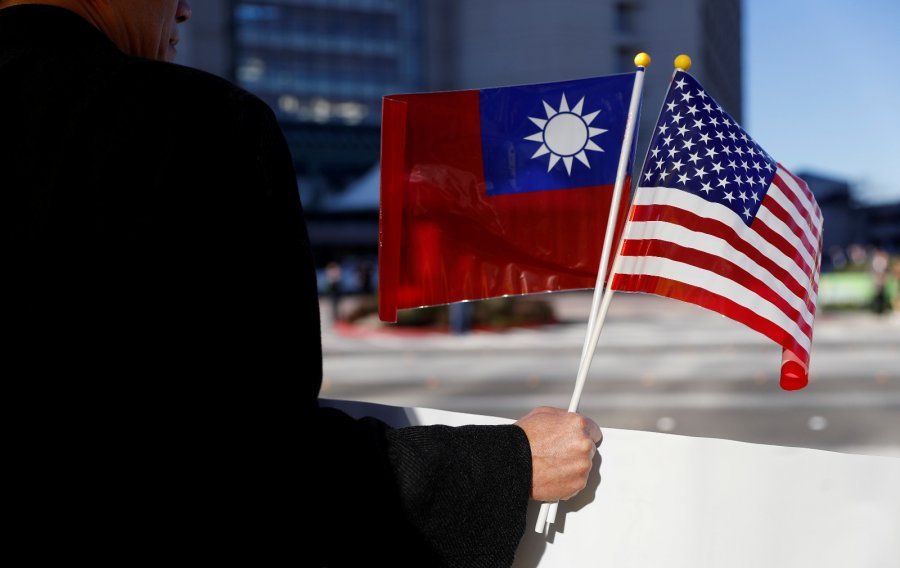








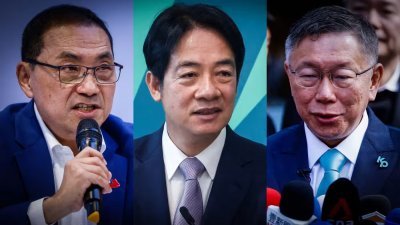
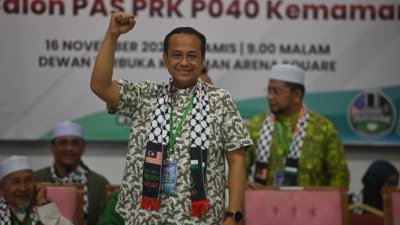



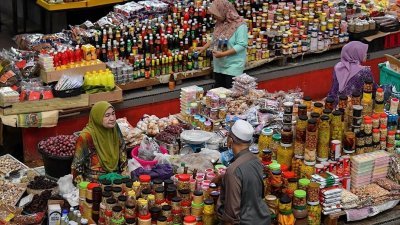
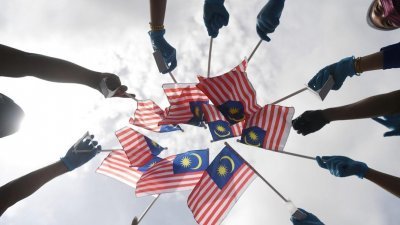
.jpeg/89663802baf7d93b5c0eb414a8efc342.jpeg)

